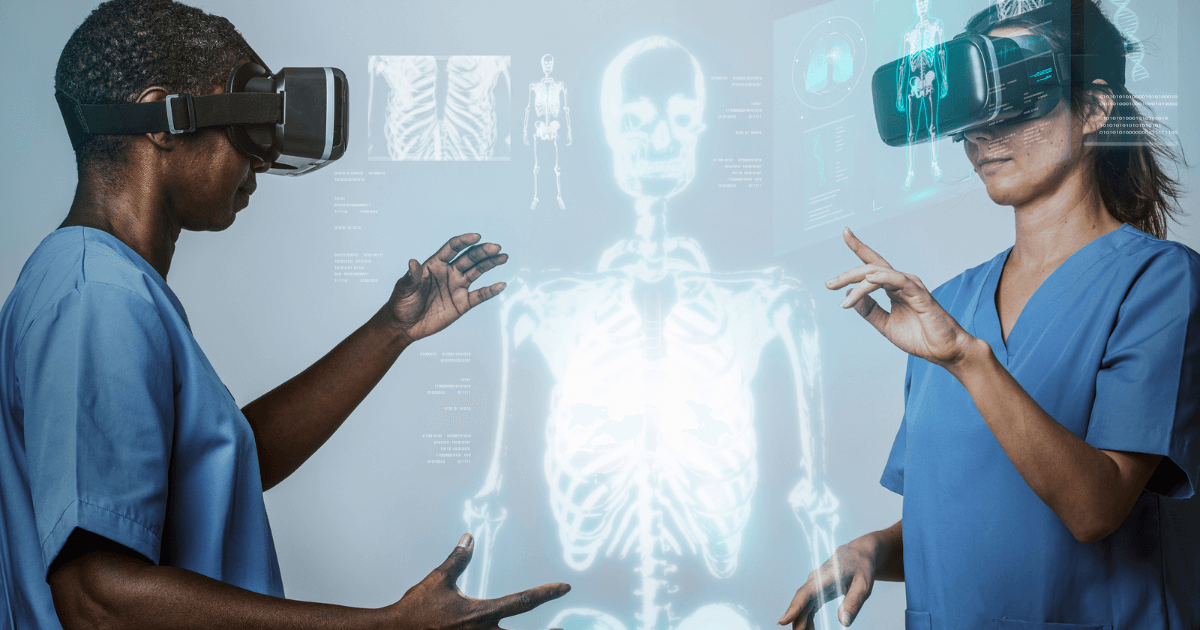Artificial Intelligence (AI) has revolutionized multiple sectors and healthcare is no exception. The recent webinar, featuring speakers Lavanya Nandan, Sachin Gaur, and Dr. V. K. Singh, delved deep into understanding AI’s contribution to healthcare, its challenges, and its future prospects.
The Current State of AI in Healthcare
Lavanya Nandan opened the discussion by highlighting the urgent need to incorporate AI into healthcare systems. AI, when integrated with health technologies, can predict outbreaks, improve patient outcomes, and even administer patient care. She mentioned the significance of creating AI-based systems that can engage with patients, providing them with immediate responses.
The Potential of AI during Pandemics
One of the pivotal moments was when Lavanya emphasized the time-saving potential of AI during global health crises like pandemics. She poignantly noted that if AI had been more advanced during the initial stages of the recent pandemic, many healthcare professionals might have been saved from exposure. AI could have enabled remote assessment and understanding of patient conditions, leading to more effective treatment without direct exposure to infection.
AI’s Role in Streamlining Administrative Tasks
Sachin Gaur discussed the administrative burdens that healthcare professionals often grapple with. Emphasizing the importance of time in the healthcare sector, he suggested that AI could handle administrative tasks. This would allow healthcare workers to focus more on patient care and showing empathy – a crucial aspect that machines cannot replicate.
Gaur also mentioned Eric Topol’s book, “Deep Medicine”, underscoring that a significant part of healthcare revolves around empathy. He argued that by freeing up medical professionals from mundane tasks, they can focus more on building patient relationships.
AI-Powered Robotics in Healthcare
The discussion took a futuristic turn when Sachin touched upon AI-powered robotics in healthcare settings. He acknowledged the presence of such robots in certain overseas medical settings and restaurants. However, he brought attention to the socio-economic implications of these robots. In countries like India, where employment opportunities are crucial, the large-scale replacement of jobs with robots may not be feasible.
Yet, the role of robotics, especially in infection control, was recognized. Robotics can mitigate human contact, which is crucial in managing the spread of infectious diseases.
Government Initiatives and Challenges
Dr. V. K. Singh brought a unique perspective, referencing governmental viewpoints on integrating AI into medical curricula. He acknowledged the supremacy of human intelligence but also cautioned against excessive dependence on AI. By sharing a real-life anecdote, Dr. Singh highlighted the potential challenges AI can bring to the academic domain, where AI-generated content might flood academic journals.
However, he also shared a personal experience where he used a tool similar to “Chat GPT” to aid in writing, signifying the immense potential of AI in simplifying complex tasks. Dr. Singh encouraged more people to learn about AI, suggesting the possibility of institutional-level AI training programs in the future.
Concluding Remarks and Future Prospects
Lavanya wrapped up the webinar with gratitude, noting the active participation, which was higher than in previous seminars. The topic’s relevance was evident as a large number of participants stayed engaged until the end. She expressed hope for another in-depth session in the future, particularly when AI in healthcare sees more advancements in India.
Lavanya’s closing remarks captured the essence of the seminar: while AI has vast potential in revolutionizing healthcare, the human touch remains irreplaceable. The challenge lies in harmoniously blending the two to create a more efficient, empathetic, and effective healthcare system.
Summary
The webinar provided a comprehensive overview of the myriad ways AI can and has transformed the healthcare sector. From predicting outbreaks to assisting in administrative tasks, the capabilities of AI are vast. Yet, as with any technological advancement, it comes with its own set of challenges. The key lies in harnessing AI’s potential without compromising the human touch that remains at the core of healthcare.

